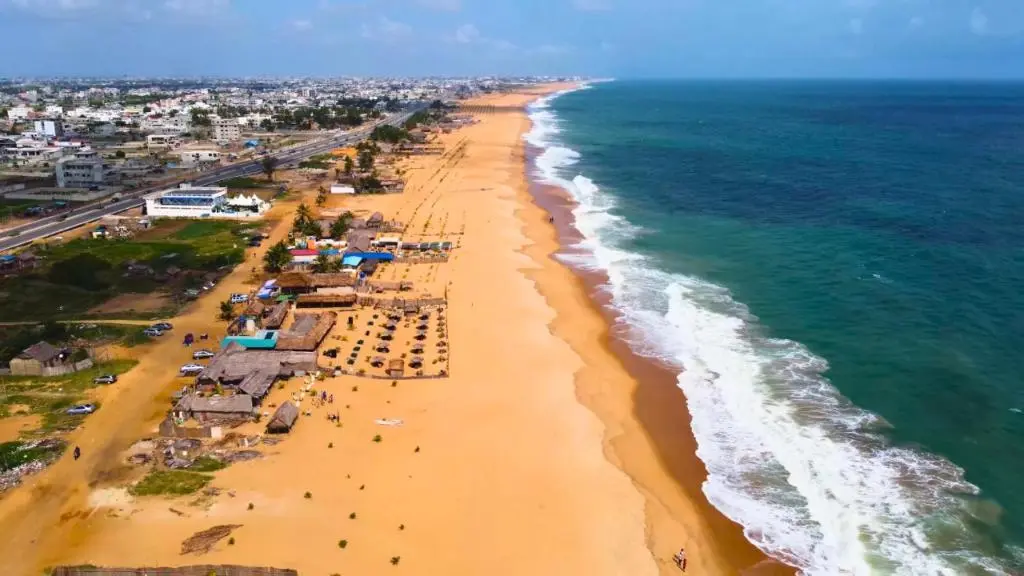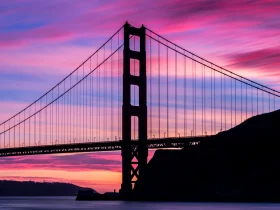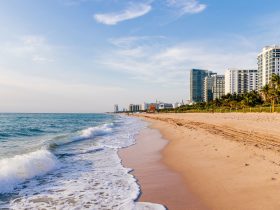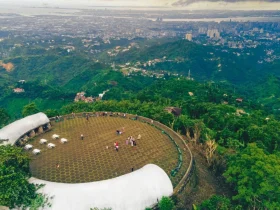Cotonou, the economic hub of Benin, is a city where history, culture, and modernity meet. As the largest city and the main port of Benin, it offers a wide range of experiences, from stunning landscapes to unique cultural experiences. If you’re planning a trip to this West African gem, here’s everything you need to know!
🌍 Key Facts about Cotonou
| Key Information | Details |
|---|---|
| Official Language | French |
| Population | Approximately 1.2 million |
| Area | 79 km² |
| Country | Benin |
| Continent | Africa |
| Local Time | GMT+1 (West Africa Time) |
| Currency | West African CFA Franc (XOF) |
| Plug Type | Type C and E (Voltage: 220V) |
| Average Annual Temperature | 28°C (82°F) |
| Climate | Tropical climate, hot and humid with rainy season (May–October) |
| Vegetation | Tropical forests, savannahs |
| Main Economic Activities | Trade, agriculture, fishing, manufacturing |
| Country Code | +229 |
| City Telephone Code | 21 30 00 00 |
🏝️ Top Tourist Attractions in Cotonou
- The Cotonou Port – One of the largest in West Africa, this busy port offers a glimpse into the economic pulse of the country.
- Lake Nokoué – A beautiful lake located just outside of Cotonou, ideal for boat tours and wildlife watching.
- Pendjari National Park – While a bit further away, it is a fantastic safari destination to experience African wildlife up close.
- Dantokpa Market – One of the largest open-air markets in West Africa, it’s perfect for buying local crafts and sampling street food.
- The Artisanal Center – A hub for traditional Beninese crafts such as pottery, weaving, and woodwork.
🚗 How to Get to Cotonou
Cotonou is easily accessible by air, land, and sea:
- By Air: Cotonou’s Cardinal Bernardin Gantin International Airport (COO) serves flights from major cities in Africa and Europe.
- By Road: Buses and taxis connect Cotonou to other major cities in Benin and neighboring countries.
- By Sea: The port of Cotonou handles international shipping and passenger ferries.
🚖 Best Transportation Tips in Cotonou
- Taxis: Taxis are the most common form of transportation within the city. Be sure to agree on a price before starting the ride.
- Moto-Taxis: These motorcycle taxis are common and very affordable for short distances.
- Buses: Local buses can be crowded but are an affordable way to get around.
🏨 Accommodation in Cotonou
Best Hotels
- Hotel du Lac – A luxury option by the lake, offering modern amenities and stunning views. Price: $150+ per night.
- Benin Royal Hotel – Known for its excellent service and comfortable rooms. Price: $120+ per night.
- Hotel des Cocotiers – A budget-friendly option with great value for money. Price: $50+ per night.
Cheapest Hotels
- Hotel Casa del Papa – A simple yet affordable option for travelers on a budget. Price: $30+ per night.
🍴 Food Recommendations in Cotonou
Beninese cuisine is a delightful mix of flavors, with dishes like:
- Pâte – A cornmeal dish often served with tomato sauce and fish or meat.
- Amiwo – A rich dish made from maize flour, often served with beef or fish.
- Fried Plantains – A popular snack or side dish, perfect when paired with grilled fish.
☕ Best Cafes and Restaurants in Cotonou
- Le Sphinx – A popular spot for both locals and tourists, offering a range of delicious local and international dishes.
- La Table de Cotonou – An upscale restaurant with both French and Beninese cuisine.
- Café des Arts – A café perfect for enjoying coffee or a light snack, while admiring local art.
🏛️ History of Cotonou
Cotonou’s history dates back to the 17th century when it was part of the Kingdom of Dahomey. It became a significant port during the transatlantic slave trade. After Benin gained independence from France in 1960, Cotonou was established as the country’s economic hub, continuing to grow into a vibrant, multicultural city today.
🏞️ Geographic Features
- Lake Nokoué: A serene lake perfect for boat rides, surrounded by lush landscapes and wildlife.
- Cotonou Beach: A relaxing spot to enjoy the ocean breeze.
- Pendjari National Park: Located in the far north, this park is a sanctuary for diverse species, including lions, elephants, and hippos.
🏆 Famous Residents
- Thomas Sankara: Though he was born in Burkina Faso, Sankara was a pivotal figure in African politics, and his influence extends to Benin.
- Angélique Kidjo: The internationally renowned Grammy Award-winning singer, born in Benin, is a cultural ambassador for the country.
🌍 Neighboring Cities and Countries
Cotonou is located in southern Benin and borders:
- Lagos, Nigeria: To the east, just a short drive away.
- Porto-Novo: The political capital of Benin, located just a few kilometers to the east.
- Togo: Located to the west of Cotonou, this neighboring country is easily accessible by road.
💡 Insider Tips for Cotonou
- Bargain at the Markets: Prices are often negotiable, especially at the Dantokpa market.
- Stay Hydrated: The tropical climate can be hot and humid, so drink plenty of water.
- Learn Some French: Although some people speak English, French is the official language, and knowing a few phrases can go a long way.
❓ Frequently Asked Questions (FAQ)
- What is the best time to visit Cotonou? The best time to visit Cotonou is between November and February, during the dry season when the weather is more comfortable.
- Is Cotonou safe for tourists? Cotonou is relatively safe, but it’s advisable to take basic precautions, such as avoiding isolated areas at night.
- What currency is used in Cotonou? The currency used in Cotonou is the West African CFA Franc (XOF).
- How do I get around Cotonou? Taxis, moto-taxis, and buses are common modes of transportation within the city.
- What should I pack for a trip to Cotonou? Pack light clothing for the warm climate, sunscreen, and comfortable walking shoes.
🌆 Neighborhoods and Villages in Cotonou
Cotonou is divided into various neighborhoods, each offering a unique experience. Some of the key areas include:
- Godomey: A bustling neighborhood known for its vibrant market and local culture. It’s one of the city’s oldest districts.
- Akpakpa: A popular residential and commercial area with a mix of traditional and modern architecture.
- Zongo: A more residential area with strong cultural roots, ideal for those looking to experience the local lifestyle.
- Porto-Novo: Though it is the capital, it is very close to Cotonou and offers a more peaceful atmosphere with historical sites.
🏞️ Major Geographic Features in Cotonou
Cotonou’s natural environment is a key attraction for travelers. Its geographic features include lakes, rivers, and the Atlantic coastline. Some notable natural landmarks are:
- Lake Nokoué: A large lake that is central to Cotonou’s ecosystem. It is home to various species of birds and offers boating opportunities.
- Cotonou Beaches: The city’s coastal area features beautiful sandy beaches where visitors can relax or enjoy water sports.
- Ouidah: A town located near Cotonou, known for its rich cultural history, including its association with the slave trade, and its beaches.
💬 Insider Tips for Visiting Cotonou
- Traveling with Local Currency: While larger shops may accept cards, it’s best to carry cash, especially for small purchases at markets and street vendors.
- Respecting Local Culture: Benin is a culturally rich country, and showing respect for local customs can enhance your experience. Try learning a few local words in Fon or Yoruba!
- Plan for Traffic: Cotonou’s streets can get crowded, especially during peak hours. Plan extra time if you have important appointments or travel arrangements.
- Try Local Beverages: Benin is famous for its homemade local drinks, including palm wine and the traditional “grogro” drink. Be sure to try these at local eateries.
- Take a Guided Tour: If you are unfamiliar with the area, a guided city tour will help you navigate Cotonou’s attractions and provide valuable insights into the city’s history and culture.
🏛️ Historical Context of Cotonou
Cotonou’s rich history is deeply tied to the transatlantic slave trade, as it was once a major port in the Kingdom of Dahomey. Its colonial past under the French has left a mark on the city’s architecture and culture. Since Benin’s independence in 1960, Cotonou has grown into the economic and commercial heart of the country. The city is also home to important political, cultural, and economic institutions in Benin.
🌍 Neighboring Cities and Countries
Cotonou’s location at the southern tip of Benin places it in close proximity to several significant locations:
- Lagos, Nigeria: Just a few hours away by car, Lagos is one of the largest cities in Africa and offers additional cultural and commercial experiences.
- Porto-Novo, Benin: The capital city of Benin is only a short drive from Cotonou, offering historical and cultural sites to explore.
- Togo: To the west of Cotonou lies Togo, another small but fascinating country offering diverse cultural experiences and scenic landscapes.
💡 Additional Insider Tips
- Take a Ferry to Ouidah: If you’re looking for a day trip, Ouidah, located just outside Cotonou, can be reached by ferry and offers historical significance as the “slave route” and a chance to explore various cultural landmarks.
- Always Have Local SIM Cards: For easier communication and data access, local SIM cards are inexpensive and widely available, making it easier to stay connected while traveling.
- Respect Local Traditions: Benin is home to rich traditions, such as voodoo. While visiting local temples and markets, show respect and be aware of cultural practices.
- Use a Travel Guide: Local travel guides can help you explore the hidden gems of Cotonou that you might miss without their insight.
❓ Frequently Asked Questions (FAQ)
- What is the best time to visit Cotonou? The best time to visit Cotonou is between November and February, during the dry season when the weather is more comfortable.
- Is Cotonou safe for tourists? Cotonou is relatively safe, but it’s advisable to take basic precautions, such as avoiding isolated areas at night and keeping an eye on your belongings.
- What currency is used in Cotonou? The currency used in Cotonou is the West African CFA Franc (XOF), which is shared among several countries in the region.
- What is the local language spoken in Cotonou? The official language is French, but many people also speak local languages like Fon and Yoruba.
- What is the transportation like in Cotonou? Cotonou has a variety of transportation options, including taxis, moto-taxis (motorcycle taxis), and buses. Taxis are the most convenient for short trips within the city.
- Can I visit Cotonou if I don’t speak French? While speaking French is helpful, many people in Cotonou understand basic English, especially in tourist areas. It’s a good idea to learn a few key phrases in French to enhance your experience.
- Are there any beaches in Cotonou? Yes, Cotonou has several beaches along the Atlantic coastline, including the popular Plage de Cotonou, where you can relax and enjoy the ocean.







Leave a Review